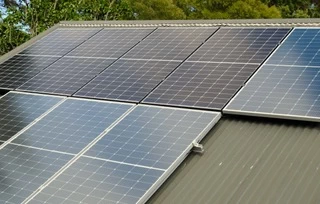Bill's Solar Blog NZ

If you've found me because you don't know where to start with solar, you've come to the right site!
I don't sell anything or install solar systems but over the past five years or so we've had two unsuccessful systems installed at home and finally a successful one. During that time, I've done a fair bit of research into household solar and dealt with a few solar companies in the process. Here you can find practical information not often forthcoming by talking with your local solar supplier. It's not all plain sailing!
Essentially a solar system captures energy from the sun with an array of solar panels and converts that DC energy into a 230V AC power source for the house using a DC/AC inverter. It will typically augment the existing 230V AC from the grid. Hopefully, this article can help you make the right system choice to meet your particular requirements.
Some important considerations
1. Do you intend to set up a system for energy security primarily or as a reduction in the amount of power you consume from the grid, or a combination of the two?
2. How much of your household electrical load should you put on solar power? A typical system will augment the grid in suppling the total load, but this is not the only option. By splitting the household circuit-breaker board into two segments you can design a system to supply only those loads you deem to be essential and leave the others on grid connection permanantly. This way costs can be kept down and when the grid does fail you have what you really need, so long as there are batteries in the mix. Or a small system might be used as a backup for some specific loads in the interests of energy security, such as tankwater pumps and'or fridge/freezer.
3. Do you intend to use a battery bank to store solar energy after the sun's gone down and/or as an emergency supply to cover for grid outages? It makes a lot of sense unless you only want to power a heavy daytime demand such as a home daylight industry or EV charging. Without batteries you have a solar system which doesn't supply you with anything 'after hours' or when the grid fails.
4. You should consider your hot water situation because this is usually a household's heaviest energy demand. Some inverter manufacturers will supply an additional hot water controller system to maximise its solar uptake. A hot water heat pump is considerably more energy efficient than a regular water cylinder. Likewise, for household heating, heat pumps save a lot of energy over gas or electric heaters, and they also serve as an air conditioner and dehumidifier. So, a solar installation might serve as a good time to consider home energy efficiency.
5. New Zealand is facing an energy crisis. After many years of mismanagement, we have no national energy strategy and an uncoordinated and unregulated mess instead, with rapidly rising prices to contend with. Then, there's the certainty of infrastructure disruptions from worsening weather events triggered by global heating. Best to be prepared.